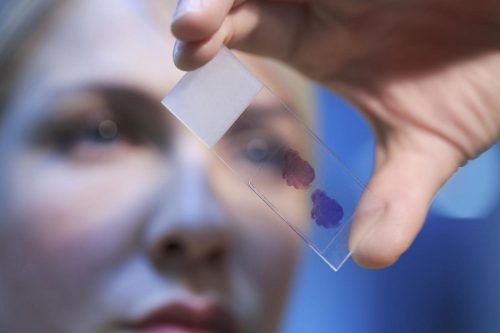Drug discovery firm counts cost of administration, but remains confident

Cheshire drugs discovery specialist Redx Pharma counted the cost of its administration after announcing figures for the year to Septemer 30, today (December 28).
In its report to shareholders it also acknowledges uncertainties over its status as a going concern.
It has enough funding to support operations into the second quarter of 2019, but recognises the need for further funding support.
The group, which carries out research into treatment for cancer and fibrosis, entered administration in May 2017, and emerged from administration in November the same year, following a dispute with Liverpool City Council over a £2m loan that matured at the end of March 2017.
AIM-listed Redx has revealed revenues of just £129,000 in the year to September 30, 2018, compared with £30.474m the previous year.
A pre-tax profit of £1.646m in 2017 has been transformed into a pre-tax loss of £10.169m.
At September 30, the Alderley Park-based group had cash resources of £6.5m, down from £23.8m the previous year.
However, chairman Iain Ross said he believes the current financial year will be “transformational” for the group.
Redx exited administration on November 2, 2017, with a remaining £13.9m in cash, after a £6.1m clawback of RGF funding was repaid in October 2017, together with final costs associated with the administration.
The group had targeted £4m of year-on-year fixed cost savings, but revealed that this target has been significantly exceeded, with operational costs running at £5.2m less in 2018 versus 2017, noting that 2017’s operating costs already reflected some of the restructuring savings and that 80% of the reduction is overhead related.
Average headcount reduced to 131 in 2017, falling further to 52 over the year to September 30, 2018, when the actual headcount was 51.
Presenting her first report as chief executive, Lisa Anson said: “In my previous role, as president of AstraZeneca UK, I was part of a team that not only looked to develop, distribute and market innovative therapeutic products but also, where appropriate to partner, license or acquire products and technologies that would add value to patients, physicians and shareholders.
“The main reason I was attracted to join Redx is the scientific strength of the group.
“My initial view was that Redx was a group whose unique capability in medicinal chemistry set it apart from many small biotech companies.
“I am confident that, despite the trials and tribulations of the previous 12 months, the group still has this core strength.”
She added: “As this set of results shows, Redx is operationally a stronger, leaner company than in prior years.
“Since joining I have reviewed all aspects of the business and we have worked hard to ensure our costs are under control and resources are realistically prioritised.
“Following the business review we have a clear, focused strategy aimed at driving shareholder value.
“I am excited by the potential of the scientific programmes we have in our portfolio.
“Taken together, our scientific strength, our focused strategy, our new management team, and our streamlined organisation put us in a good position to deliver against our ambitions in the coming year.”
In his report, chairman Iain Ross said: “During the period under review, the board and management have continued to adopt a robust set of financial controls including a project-based operating model and associated rolling short-term cash flow forecasts to assist in the prioritisation of resources to projects resulting in greater transparency and project accountability.
“The team has delivered annualised cost savings of approximately £5.2m and has a cash runway into the second quarter of 2019.
“As a consequence, your board is committed to strengthening the group’s balance sheet in the short term and is in active discussions with shareholders, advisers, third party sector specialist investment groups and potential industry partners regarding funding and/or monetisation of early stage programme assets.”
Mr Ross added: “The last 12 months have been challenging for all involved and as a result the board has continued to focus upon total transparency and realism.
“I believe we have emerged as a stronger and more professional organisation whilst retaining a strong scientific core and that the forthcoming year will be transformational.
“I look forward to an exciting future under Lisa’s leadership and on behalf of the board I would like to thank our employees for their hard work and dedication, as well as our suppliers, business partners and shareholders for their continued support over the last year.”
Following administration the boardroom underwent a significant shake-up.
Chief executive Lisa Anson was appointed on June 1, 2018, and the accounts show her total remuneration for the year was £171,662.
Interim chief financial officer Dominic Jackson was appointed to the board on November 3, 2017, and his remuneration for the year was £118,958.
Former chief executive, Dr Neil Murray, resigned as a director on November 3, 2017, and his remuneration for the year was £244,923, compared with £214,021 during 2016/17, in payments, said the company, which reflect contractual obligations.
Chairman Iain Ross was appointed a director on May 1, 2017, and his total remuneration for the year was £250,000, compared with £83,333 the previous year.
Dominic Jackson will step down from his role early in 2019 and will be replaced on February 1, by Dr James Mead.







